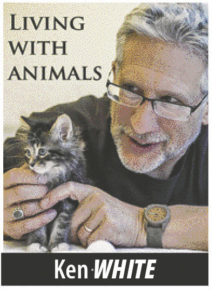Just one of many colorful sayings involving animals, “hair of the dog” is the prescription to cure a hangover by drinking just a bit of what caused it. (From my undergrad days, I know that’s terrible advice.) The fuller version of the expression is “hair of the dog that bit me”, a medieval belief that to cure rabies from a dog bite one only needed to apply some hair from that same dog to the bite wound. (No relevant college experience but I suspect this too is bad advice.) The origin of “it’s raining cats and dogs” is full of fun and fanciful theories but the probable genesis is actually the opposite: rainstorm flooded 17th century London streets carrying water-borne corpses. Sorry you asked? Equally yucky, the origin of “an albatross round his neck” is found in Coleridge’s poem “The Rime of an Ancient Mariner” in which said mariner shoots an albatross, for no good or apparent reason, and is obligated to wear the bird around his neck as punishment.
“Don’t look a gift horse in the mouth”, means you should be grateful for the gift. Dating back to St. Jerome’s “Letter to the Ephesians”, circa 400 A.D., it is advice against implying you had hoped for something more by assessing a gift’s value, such as checking out the teeth of a horse received as a gift in the effort to determine if it’s really an old nag. “White elephant”, meaning a burdensome possession, harkens back to albino pachyderms regarded as holy animals in ancient Thailand. As holy animals they required special food and other treatment and could not be used as simple beasts of burden. As such, a Thai King who had reason to subtly cause the ruin of someone might present them with a white elephant, the gift more than likely leading to bankruptcy. How about “cat got your tongue?” for someone unusually quiet…? Hard to imagine someone with any cat-grasped appendage being quiet and no one knows where that expression originates.

